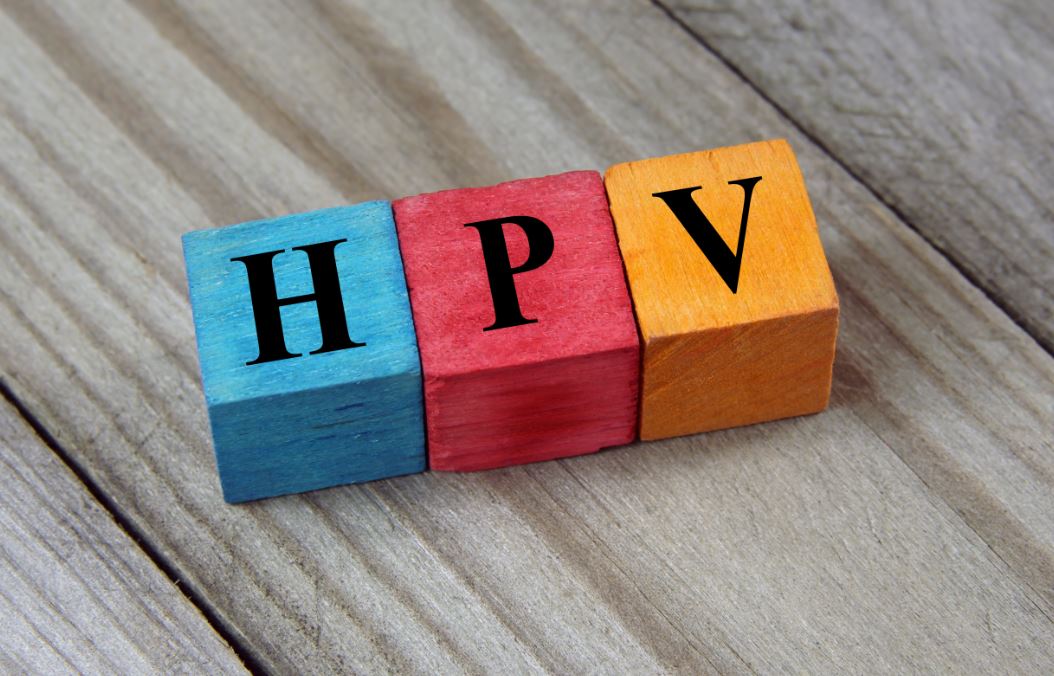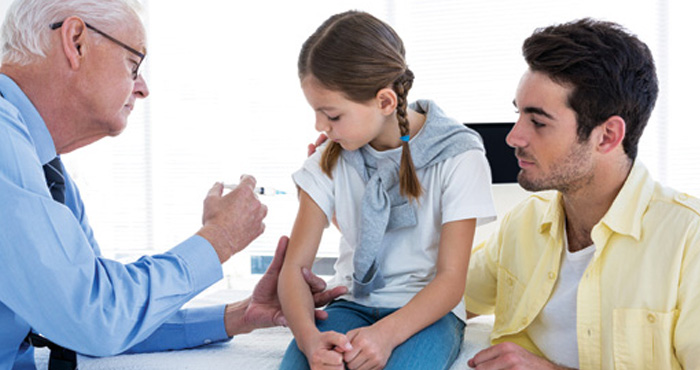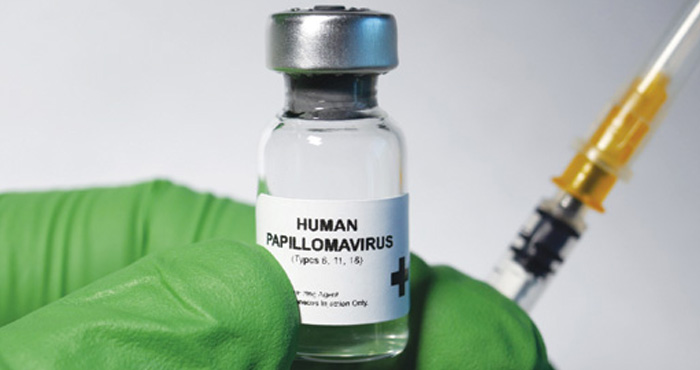HPV vaccination & pharmacy
In Population Health
Follow this topic
Bookmark
Record learning outcomes
HPV vaccination became available to boys last autumn, 11 years after it was introduced for girls. So what opportunities for patient care does this programme and others like it offer community pharmacists?

Learning Objectives
After reading this feature you should be able to:
- Explain the rationale behind the HPV vaccination programme
- Recognise the role pharmacy can play in supporting the delivery of this service
- Use your contact with patients and their families to check on vaccination status.
The human papillomavirus (HPV) vaccination, which protects against cervical cancer, was introduced for girls aged 12-13 years in September 2008. Although it was initially considered that herd immunity would be enough to protect boys (as well as girls) from HPV-related cancers such as those affecting the head, neck, anal and genital regions, the NHS programme was expanded in September 2019 to include all 12-13 year-old boys.
The decision to expand the programme was based on advice from the Joint Committee on Vaccination and Immunisation (JCVI), the primary aim being to help prevent more cases of HPV-related cancers and genital warts in boys and girls.
In England, girls and boys will be routinely offered a first HPV vaccination when they are in year 8, with a second dose offered six to 12 months after the first dose (year 8 or year 9). To be protected it is important to have both doses, so those who missed their HPV vaccination in year 8 can have the vaccine up to their 25th birthday. However, young people who start the vaccination programme after the age of 15 years will need three doses as they do not respond as well to two doses.
While the aims of the programme are pretty straightforward, pharmacy customers may still be confused about what HPV is and how it causes cancer – which gives community pharmacy teams the opportunity to offer some clear explanations.
Different types
HPV is the name given to a group of more than 100 different viruses, around 40 of which affect the genital area. HPV is common and can be caught through any kind of sexual contact with another person. Most people will get an HPV infection at some point in their life but, in the majority of cases, the body will get rid of it naturally without treatment.
However, some people will be infected with a high-risk type of HPV which, over time, can cause abnormal tissue growth as well as other changes that can lead to cancer if not treated. High-risk types of HPV are linked to different types of cancer, including cervical, vaginal, vulval, anal and cancer of the penis, as well as some cancers of the head and neck.
Infection with other types of HPV may also cause genital warts – the most common viral sexually transmitted infection (STI) in the UK – and also skin warts and verrucas, as well as warts on the voice box or vocal cords (laryngeal papillomas). HPV infections
do not usually cause any symptoms, so most people will not know they are infected.
The NHS HPV vaccination programme uses Gardasil, which protects against four types of HPV: 6, 11, 16 and 18. Between them, types 16 and 18 are the cause of more than 70 per cent of cervical cancers in the UK, according to NHS England, and also cause anal and genital cancers, and cancers of the head and neck. HPV types 6 and 11 cause around 90 per cent of genital warts.
Pharmacy teams should ensure that customers understand that HPV vaccination does not protect against other infections spread during sex, such as chlamydia, and will not stop girls getting pregnant – so safe sex is still very important.
In England girls and now boys will be routinely offered the first HPV jab when they are in year 8, with a second dose given six to 12 months later

Opportunity for pharmacy?
Although mainly a school-based service, there are opportunities for community pharmacies to get involved in HPV vaccination beyond just being a repository of advice about HPV and sexual health.
Boots has offered the HPV vaccine for women aged 18-44 years since 2009, extending the service to boys and girls aged 12-16 years in 2017. In November 2019 LloydsPharmacy introduced a HPV vaccination service for people aged between 12-45 years in 13 city stores around the UK that are situated close to universities.
“HPV is a virus that most of us will come into contact with at some point, therefore we feel it is important to give customers the opportunity to get vaccinated at their convenience,” says Deep Patel, healthcare services manager at LloydsPharmacy.
Key facts
- HPV is the name given to a group of more than 100 different viruses
- The aim of vaccination is to help prevent HPV-related cancers and genital warts in boys and girls
- Although primarily a school-based service, there are opportunities for community pharmacies to support the HPV vaccination programme.
“This is an opportunity to demonstrate that pharmacists can play an even bigger role in helping their communities to better manage their health by delivering more services,” he says.
Rekha Shah, chief executive officer at Pharmacy London and Kensington Chelsea and Westminster LPC, was involved in the pharmacy pilot for HPV vaccination in 2010 and says community pharmacies are now in an even better position to promote and deliver this kind of service.
“When I was vaccinating young women who had missed the catch-up programme in school back in the 2010 pilot, word of mouth was the only thing that directed people to the service,” she says. “Community pharmacies are now much better known as destinations for vaccinations thanks to pharmacists running flu and travel clinics – so they are very capable of running a HPV vaccination service.”
“As far as I’m concerned it is a no-brainer and the service should be more widely rolled out in community pharmacy,” she says. “We’ve already got the infrastructure, the training and the competencies, but as is so often the case the powers-that-be are quite slow at realising the huge potential to help public health that the pharmacy sector has. If a HPV service can be rolled out on a bigger scale in pharmacies, it could be a real success.”
In the meantime, whether pharmacies are involved in vaccinating people or simply making referrals to other services, there is plenty that can be done to promote and encourage take-up of all vaccinations to the public.
Government advice to all frontline healthcare professionals is to make use of contact with patients to check their vaccination status and offer outstanding doses or signpost to immunisation services. Text messages could also be used to remind patients and parents when further immunisation appointments are due. Parents and young people can also be given tailored information, advice and support to ensure they know about the recommended routine vaccinations and the benefits of immunisation.
As far as I’m concerned it is a no-brainer and the service should be more widely rolled out in community pharmacy
Vaccine safety
With so much mis-information continuing to circulate about the safety and efficacy of vaccinations in general, pharmacists may find that parents and carers of eligible children are hesitant and need reassurance.
The World Health Organization (WHO) recently listed vaccine hesitancy – where people with access to vaccines delay or refuse vaccination – as one of their top 10 biggest threats to global health. It is important therefore to explain that all vaccines are thoroughly tested to make sure they are safe, often taking many years to make it through all the tests needed in order to be approved.
Oxford University’s Vaccine Knowledge Project (vk.ovg.ox.ac.uk/vk/vaccine-safety) is a useful resource that customers can be directed to. This advises that in the case of all the vaccines used in the current UK routine schedule, the overwhelming evidence is that vaccinating is safer than not vaccinating and it is rarely necessary to delay immunisation – although if someone is very unwell with a high temperature, it is a good idea to put off vaccination until they have fully recovered so that the symptoms of that illness do not get confused with any reaction to the vaccine.
While ‘anti-vaccine’ stories continue to be spread online via social media, pharmacists can assure customers that these are not based on scientific evidence and could put their child at risk of a serious illness.
Being able to give clear, confident advice can make a huge and often life-saving difference to people’s health. “The more people know, the more likely they are to seek out vaccinations,” says Anna Ruthven, head of services at McKesson UK, parent company of LloydsPharmacy.
Prevention is far less costly to the NHS and more preferential to patients than cure, she adds. “The more trust we can build in the service, the more vaccinations we will be able to administer, and cases of HPV, and more specifically cervical cancer, will continue to fall.”

